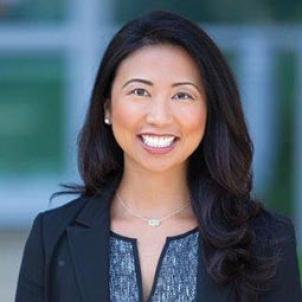
Providing Psychological Support in Pediatric Urology
The Division of Urology at Children’s Hospital Los Angeles is one of only a handful of programs across the country to offer a full-time, dedicated psychologist to support pediatric patients with urologic issues.
This past summer, the team welcomed a new psychologist into that role: Michelle SooHoo, PhD. Dr. SooHoo supports children and families dealing with voiding dysfunction, as well as those with complex conditions such as bladder exstrophy.
“The needs of pediatric urology patients are quite unique, and families really benefit from having a dedicated psychologist who understands what they’re going through,” she says.

Mental health and voiding dysfunction
Studies have shown that behavioral and mental health issues can often play a large role in voiding dysfunction—impacting children’s ability to void appropriately and fully empty their bladders.
Two common conditions that can cause these difficulties are anxiety and attention deficit hyperactivity disorder (ADHD).
“Families often come in wondering, ‘Is there something biologically wrong with my child?’ And when the answer is no, psychology support can be very helpful in addressing underlying issues and implementing behavioral and mental health strategies,” Dr. SooHoo says.
For example, children with ADHD may be impulsive and forget to use the bathroom until it’s too late. One simple strategy that can help is timed voids—using the bathroom every hour on a schedule, regardless of whether there is an urge to go.
“Parents and children often feel frustrated,” she adds. “They feel like they should know how to toilet, so why can’t they do it? One of my roles is to really help families have more empathy for themselves and recognize that this is a work in progress. It’s not something they will experience for the rest of their lives.”

Supporting surgical readiness
Psychological support is also critical for patients with complex conditions such as bladder exstrophy, a birth defect in which the bladder and related structures are turned inside out.
Many of these children will eventually have a major reconstructive surgery to allow them to be continent. However, the surgery requires routine, lifelong catheterization afterward—which can be challenging for patients.
“It’s critical that children and families are fully ready to undergo such a big surgery,” says Evalynn Vasquez, MD, MBA, Director of the Complex Reconstruction and Malformations Program. “That’s where our psychologist can help with evaluating patients beforehand and also provide children with strategies for dealing with pain and discomfort.”
Dr. Vasquez is currently leading a research study on how to better prepare patients and families psychologically for these reconstructive surgeries. Dr. SooHoo and the team are conducting in-depth interviews with children and parents of children who have undergone such surgeries at Children’s Hospital Los Angeles in the past five years.
“We’re asking them about the lessons they’ve learned, the coping strategies that have helped them, and the kinds of mental health support they feel would be beneficial,” Dr. SooHoo explains. “The goal is to then apply those real-world experiences to enhance our pre-surgical evaluations and resources.”
Prior to joining the Division of Urology, Dr. SooHoo completed a postdoctoral fellowship in pediatric psychology at Children’s Hospital Los Angeles. She received her doctorate in school psychology from Texas A&M University.
“I’m very excited to be part of the Urology team,” she says. “My goal is to give children and families the skills and support they need, so they can go on to live healthy and happy lives.”


